
|
|
|
| |

|
|
| |
The latest neurology news from News Medical |
|
|
|
 | | |  Long-term consumption of caffeine has negative effects for Alzheimer's disease Long-term consumption of caffeine has negative effects for Alzheimer's disease A study coordinated by the Institute of Neuroscience of the Universitat Autònoma de Barcelona and in collaboration with the Karolinska Institutet in Sweden provides evidence that a long-term consumption of caffeine has negative effects for Alzheimer's disease, worsening the neuropsychiatric symptoms appearing in the majority of those affected by the disorder. The research was recently published in Frontiers in Pharmacology. | | | | | 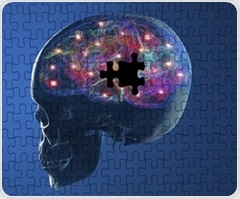 Parkinson's patients who show depression symptoms may actually have demoralization, study says Parkinson's patients who show depression symptoms may actually have demoralization, study says People with Parkinson's disease who show signs of depression may actually have a condition called demoralization, according to a study published in the April 4, 2018, online issue of Neurology®, the medical journal of the American Academy of Neurology. That study found demoralization may be common in Parkinson's disease. | |
|
|
| |  | | |  Like childhood cancers, early life epilepsies represent many rare disorders with diverse underlying causes. Unlike childhood cancers, little has changed in the outcomes of early life epilepsies in the past few decades, despite advances in diagnostic technologies and availability of new treatments. Like childhood cancers, early life epilepsies represent many rare disorders with diverse underlying causes. Unlike childhood cancers, little has changed in the outcomes of early life epilepsies in the past few decades, despite advances in diagnostic technologies and availability of new treatments. | | | | | 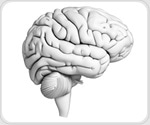 Researchers from Case Western Reserve University School of Medicine and colleagues have discovered how two brain regions work together to maintain attention, and how discordance between the regions could lead to attention deficit disorders, including schizophrenia, bipolar disorder, and major depression. Researchers from Case Western Reserve University School of Medicine and colleagues have discovered how two brain regions work together to maintain attention, and how discordance between the regions could lead to attention deficit disorders, including schizophrenia, bipolar disorder, and major depression. | | | | | 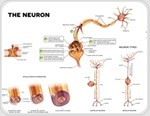 Scientists have long debated the fact that brains change with age and no new brain cells or neurons are added once an adult is fully grown. With age the number of neurons begins to decline leading to several problems with memory and cognition. Scientists have long debated the fact that brains change with age and no new brain cells or neurons are added once an adult is fully grown. With age the number of neurons begins to decline leading to several problems with memory and cognition. | | | | |  Parkinson's disease, a progressive brain disorder, is often tough to treat effectively because symptoms, such as tremors and walking difficulties, can vary dramatically over a period of days, or even hours. Parkinson's disease, a progressive brain disorder, is often tough to treat effectively because symptoms, such as tremors and walking difficulties, can vary dramatically over a period of days, or even hours. | | | | |  Massachusetts Eye and Ear researchers have shown that mifepristone, a drug currently FDA-approved for chemical abortion, prevents the growth of vestibular schwannoma cells. This sometimes-lethal intracranial tumor typically causes hearing loss and tinnitus Massachusetts Eye and Ear researchers have shown that mifepristone, a drug currently FDA-approved for chemical abortion, prevents the growth of vestibular schwannoma cells. This sometimes-lethal intracranial tumor typically causes hearing loss and tinnitus | | | | | 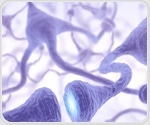 For the first time, UNC School of Medicine researchers have used MRIs to show that babies with the neurodevelopmental condition fragile X syndrome had less-developed white matter compared to infants that did not develop the condition. For the first time, UNC School of Medicine researchers have used MRIs to show that babies with the neurodevelopmental condition fragile X syndrome had less-developed white matter compared to infants that did not develop the condition. | | | | | 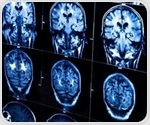 An advance by UCLA neuroscientists could lead to a better understanding of astrocytes, a star-shaped brain cell believed to play a key role in neurological disorders like Lou Gehrig's, Alzheimer's and Huntington's disease. An advance by UCLA neuroscientists could lead to a better understanding of astrocytes, a star-shaped brain cell believed to play a key role in neurological disorders like Lou Gehrig's, Alzheimer's and Huntington's disease. | | | | |  An international research consortium used neuroimaging techniques to analyze the brains of more than 3,800 volunteers in different countries. The largest study of its kind ever conducted set out to investigate anatomical similarities and differences in the brains of individuals with different types of epilepsy and to seek markers that could help with prognosis and treatment. An international research consortium used neuroimaging techniques to analyze the brains of more than 3,800 volunteers in different countries. The largest study of its kind ever conducted set out to investigate anatomical similarities and differences in the brains of individuals with different types of epilepsy and to seek markers that could help with prognosis and treatment. | |
|
|
|
|
|
|
|